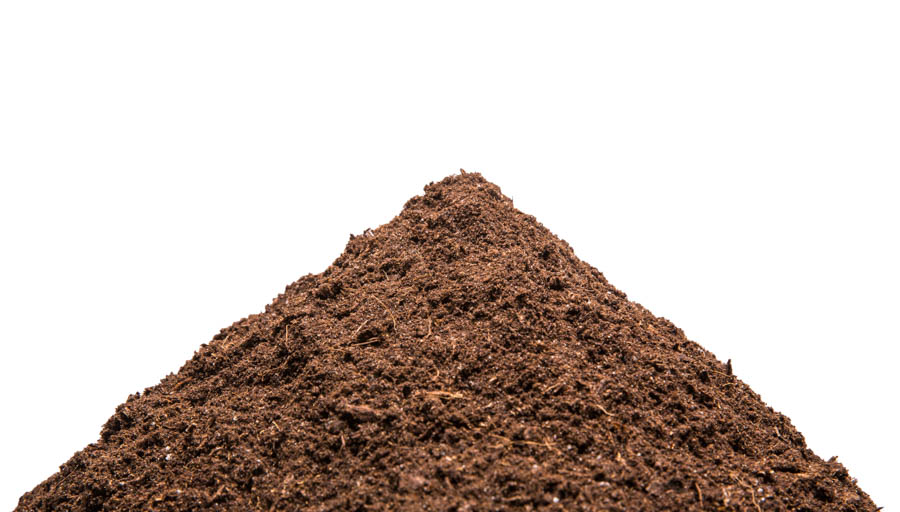New Year's Resolution: Compost More Waste

New Year’s Gardening Resolution 2: Compost More Household and Garden Waste.
GardenZeus receives commissions for purchases made through links in this post. There is no additional cost to you.
All life on Earth is made of the same building blocks, the organic elements. These include carbon, hydrogen, nitrogen, and many more that are recognizable to gardeners. Composting is the process of breaking down organic matter, which is any material that was once alive as part of a plant or animal, so that the basic building blocks can be reused for new life.
Composting occurs naturally in soil, at soil surfaces, and in nooks and crannies everywhere in gardens. Soil organic matter can be increased when cleaning up gardens by cutting expired plants at the soil line and leaving roots in soil to decompose. Quality compost is high in humus and humid acids, which contain the building blocks of plant life in ideal form for plant roots to absorb them.
Most of us can do better with being more thorough about composting. Enormous volumes of organic matter that could have composted are sent to landfills as household and yard waste. This has many polluting and negative environmental impacts, from the manufacturing and gasoline required to operate garbage trucks to otherwise reusable organic matter becoming toxified for the long term in landfills when it mixes with toxic chemicals and substances, toxic metals, commercial and manufacturing waste, and other toxic trash. Organic matter that has been cycling through life on Earth for millions of years may be tied up indefinitely in our human landfills once mixed with toxins.
Most gardeners know that they can compost apple cores, citrus peels, banana peels, and most food wastes but what about the following?:
– Eggshells: GardenZeus Expert Darren Butler considers eggshells to be the best source of calcium for soil and gardens. For many gardeners, they are too precious to put directly into a compost pile, and are used instead to provide extra calcium directly in soil or under mulch near tomatoes and other garden plants.
– Human hair and pet fur: Hair and fur contain nitrogen. They may break down slowly in compost.
– Pet bedding such as wood shavings from cages or aquariums
– Paper towels, napkins, and tissues
– Newsprint and newspapers: Most major newspapers in Southern California have been printed with non-metallic inks for years. Colored or glossy newsprint may contain pollutants. Check with your newsprint source.
– Paper and cardboard, especially with minimal printing or plant-based inks: Many online sources recommend composting printed paper, but toner and inks may contain plastics or other substances that are best kept out of soil. Use caution with recycled cardboard which may be best disposed of in the recycling bin, because it may contain bits of metal, plastic, or other pollutants.
– Plant wastes: All plant wastes are technically compostable. Some may take a long time to break down in a compost pile. In most cases it’s best not to compost plant materials that are diseased or pest-infested as doing so may perpetuate these problems in your soil and/or garden.
– Corn cobs and avocado pits, anyone?: These will compost . . . eventually. They may persist in compost bins for a year or longer.
– Dryer lint: Many online sources recommend composting dryer lint. GardenZeus expert Darren Butler agrees, provided that the lint is from natural-fiber clothes such as cotton or hemp. Dryer lint from synthetic fabrics may contain nylon, polyester, or plastic bits and threads that are best kept out of your garden soil.
– Cotton balls, paper/cotton Q-tips, and discarded cotton cloth: Be sure that these are cotton rather than synthetic.
– Sweepings and vacuumings: These contain mostly organic matter under normal household conditions. Recommended for composting when your home is nontoxic and you know that there aren’t pollutants on your floors or carpets. Most carpets are synthetic and stray pieces of carpet are best kept out of the compost pile.
– Special care or expertise is needed to compost some organic household wastes safely, without unwanted smells, and without attracting rodents, such as meats, bird or animal bones, oils, and dairy. Domestic pet wastes may contain pathogens that cause disease in humans.
Composting is a gift to future generations, and helps to perpetuate life. It’s an age-old method for providing fertility to plants, and a necessity for sustainable living today.
Don’t have a compost bin?
GardenZeus recommends the following outdoor compost bin for your household and garden waste:
This container sits on your kitchen counter and holds your household waste before you place it in your outdoor compost bin. Odor free.
Want to read more about composting and the soil food web? Look no farther than the iconic gardening book, Teaming With Microbes.
Other articles about soil and composting:
New Year’s Resolution: Focus on Soil, Not Plants
Grow Cucurbits in Mature Compost Pile
GardenZeus has customized gardening information by plant and zip code. To get started, click here.
